Following is the list of cities and the associated costs for Deep Brain Stimulation in Turkey:
| City | Minimum Cost (USD) | Minimum Cost (TRY) | Maximum Cost (USD) | Maximum Cost (TRY) |
|---|---|---|---|---|
| Istanbul | USD 21000 | 632940 | USD 28000 | 843920 |
| Ankara | USD 21000 | 632940 | USD 28000 | 843920 |
| Konya | USD 18900 | 569646 | USD 25200 | 759528 |
| Kocaeli | USD 18900 | 569646 | USD 25200 | 759528 |
| Bursa | USD 18900 | 569646 | USD 25200 | 759528 |
Following is the list of countries and the associated costs for Deep Brain Stimulation:
Treatment cost
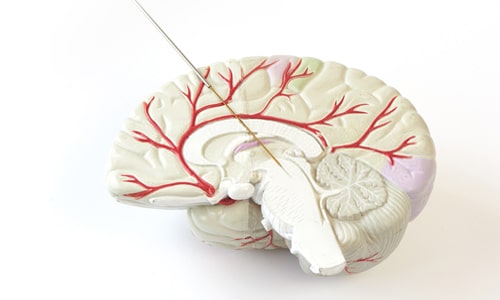
Gurgaon, India
USD 26250 USD 30000
Verfifed
MediGence is offering immense facilities for your medical journey such as:
We provide packages at economical prices with a number of additional benefits which make it a better opportunity than spending actual hospital costs with singular benefits. A device which transmits electrical signals to those areas of the brain which are the source of various body movements is implanted and this process is known as Deep Brain Stimulation. It involves placing electrodes deep in the brain and connecting them with a stimulator device. Deep Brain Stimulation helps with symptoms that are caused by Parkinson�s disease, dystonia, or essential tremor. Rechargeable batteries in the implant have a life of 15 to 25 years., All inclusive packages are available with us for all your needs regarding Deep Brain Stimulation to be done in Artemis Health Institute, India.
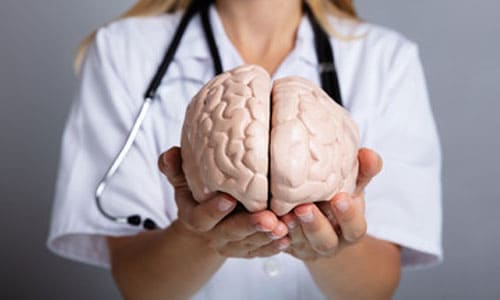
Istanbul, Turkey
USD 25000 USD 30000
Verfifed
We provide numerous services for your medical journey, including:
We provide packages at economical prices with a number of additional benefits which make it a better opportunity than spending actual hospital costs with singular benefits. A device that transmits electrical signals to those areas of the brain which are the source of various body movements is implanted and this process is known as Deep Brain Stimulation. It involves placing electrodes deep in the brain and connecting them with a stimulator device. Deep Brain Stimulation helps with symptoms that are caused by Parkinson's disease, dystonia, or essential tremor. Rechargeable batteries in the implant have a life of 15 to 25 years., All inclusive packages are available with us for all your needs regarding Deep Brain Stimulation to be done in NPISTANBUL Brain Hospital, Turkey.
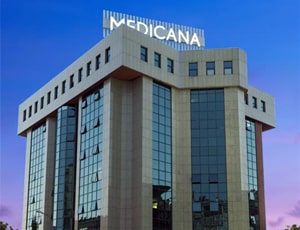
Types of Deep Brain Stimulation in Medicana Camlica Hospital and its associated cost
| Treatment Option | Approximate Cost Range (USD) | Approximate Cost Range (TRY) |
|---|---|---|
| DBS (Overall) | 19857 - 34095 | 620678 - 1021972 |
| Subthalamic Nucleus (STN) | 16715 - 32135 | 510928 - 960532 |
| Globus Pallidus Internus (GPi) | 13575 - 29714 | 409369 - 869832 |
| Ventral Intermediate Nucleus (VIM) | 20462 - 33105 | 612482 - 1025771 |
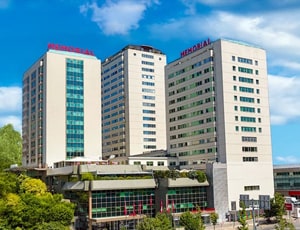
Types of Deep Brain Stimulation in Memorial Sisli Hospital and its associated cost
| Treatment Option | Approximate Cost Range (USD) | Approximate Cost Range (TRY) |
|---|---|---|
| DBS (Overall) | 20533 - 34204 | 615543 - 1016135 |
| Subthalamic Nucleus (STN) | 16833 - 31316 | 505917 - 961815 |
| Globus Pallidus Internus (GPi) | 13462 - 28735 | 408527 - 863568 |
| Ventral Intermediate Nucleus (VIM) | 19972 - 33754 | 601731 - 1038629 |
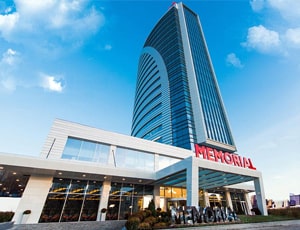
Types of Deep Brain Stimulation in Memorial Ankara Hospital and its associated cost
| Treatment Option | Approximate Cost Range (USD) | Approximate Cost Range (TRY) |
|---|---|---|
| DBS (Overall) | 20488 - 33443 | 605015 - 1003452 |
| Subthalamic Nucleus (STN) | 16651 - 31573 | 504638 - 950889 |
| Globus Pallidus Internus (GPi) | 13448 - 28901 | 403524 - 892616 |
| Ventral Intermediate Nucleus (VIM) | 20285 - 33079 | 610490 - 999679 |

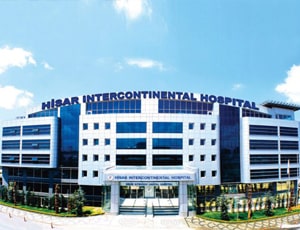
Types of Deep Brain Stimulation in Hisar Intercontinental Hospital and its associated cost
| Treatment Option | Approximate Cost Range (USD) | Approximate Cost Range (TRY) |
|---|---|---|
| DBS (Overall) | 20010 - 34004 | 617175 - 1001763 |
| Subthalamic Nucleus (STN) | 17032 - 31699 | 519082 - 942060 |
| Globus Pallidus Internus (GPi) | 13349 - 29089 | 402864 - 878257 |
| Ventral Intermediate Nucleus (VIM) | 20316 - 34289 | 607582 - 1017031 |
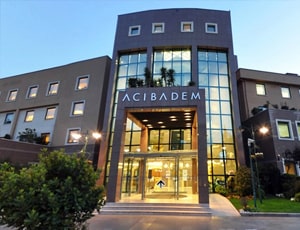
Types of Deep Brain Stimulation in Acibadem Kadikoy Hospital and its associated cost
| Treatment Option | Approximate Cost Range (USD) | Approximate Cost Range (TRY) |
|---|---|---|
| DBS (Overall) | 20252 - 33959 | 622220 - 1024576 |
| Subthalamic Nucleus (STN) | 16615 - 30923 | 505570 - 939789 |
| Globus Pallidus Internus (GPi) | 13413 - 29058 | 401844 - 895791 |
| Ventral Intermediate Nucleus (VIM) | 20536 - 33349 | 623705 - 997851 |
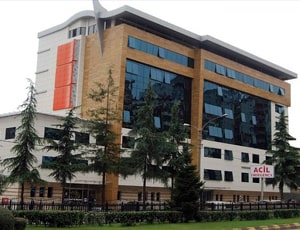
Types of Deep Brain Stimulation in Medical Park Karadeniz Hospital and its associated cost
| Treatment Option | Approximate Cost Range (USD) | Approximate Cost Range (TRY) |
|---|---|---|
| DBS (Overall) | 20080 - 33502 | 600942 - 1029269 |
| Subthalamic Nucleus (STN) | 16988 - 31297 | 501077 - 968382 |
| Globus Pallidus Internus (GPi) | 13658 - 28807 | 409597 - 883493 |
| Ventral Intermediate Nucleus (VIM) | 20699 - 33852 | 606774 - 1028627 |
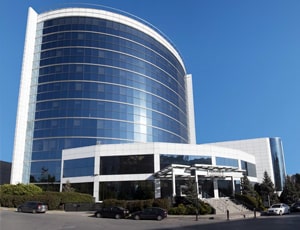
Types of Deep Brain Stimulation in Medicana International Istanbul and its associated cost
| Treatment Option | Approximate Cost Range (USD) | Approximate Cost Range (TRY) |
|---|---|---|
| DBS (Overall) | 20013 - 33984 | 602895 - 999557 |
| Subthalamic Nucleus (STN) | 17000 - 31907 | 512639 - 948940 |
| Globus Pallidus Internus (GPi) | 13301 - 29213 | 403913 - 896732 |
| Ventral Intermediate Nucleus (VIM) | 19802 - 34208 | 608272 - 1023800 |
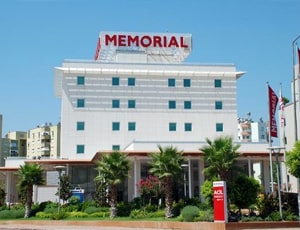
Types of Deep Brain Stimulation in Memorial Antalya Hospital and its associated cost
| Treatment Option | Approximate Cost Range (USD) | Approximate Cost Range (TRY) |
|---|---|---|
| DBS (Overall) | 20257 - 33249 | 619844 - 1021275 |
| Subthalamic Nucleus (STN) | 16993 - 32066 | 508496 - 937541 |
| Globus Pallidus Internus (GPi) | 13431 - 29492 | 406435 - 895886 |
| Ventral Intermediate Nucleus (VIM) | 19817 - 33377 | 616609 - 1018990 |
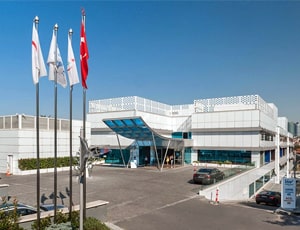
Types of Deep Brain Stimulation in Liv Hospital Ulus and its associated cost
| Treatment Option | Approximate Cost Range (USD) | Approximate Cost Range (TRY) |
|---|---|---|
| DBS (Overall) | 20466 - 33206 | 607639 - 1000772 |
| Subthalamic Nucleus (STN) | 16973 - 31302 | 504634 - 934798 |
| Globus Pallidus Internus (GPi) | 13455 - 29075 | 415787 - 879378 |
| Ventral Intermediate Nucleus (VIM) | 20031 - 33282 | 611035 - 994768 |
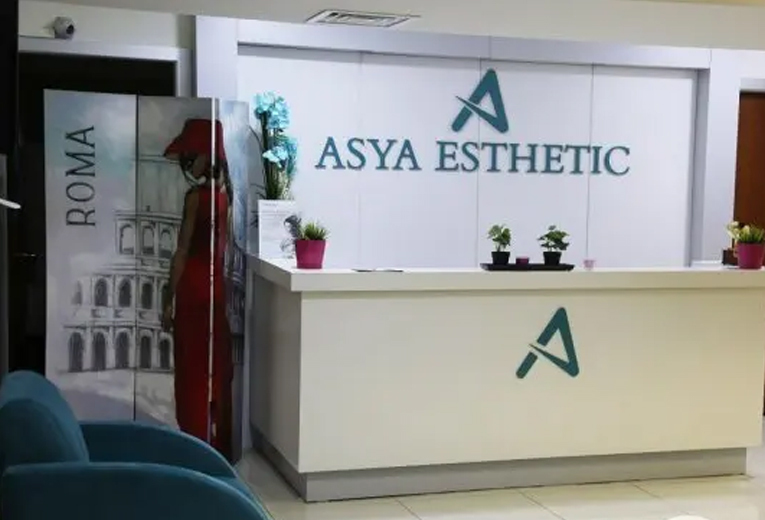
Types of Deep Brain Stimulation in Asya Hospital and its associated cost
| Treatment Option | Approximate Cost Range (USD) | Approximate Cost Range (TRY) |
|---|---|---|
| DBS (Overall) | 18351 - 30318 | 551216 - 913820 |
| Subthalamic Nucleus (STN) | 15229 - 28530 | 457682 - 855008 |
| Globus Pallidus Internus (GPi) | 12175 - 26285 | 368508 - 793461 |
| Ventral Intermediate Nucleus (VIM) | 18289 - 30454 | 550366 - 918696 |
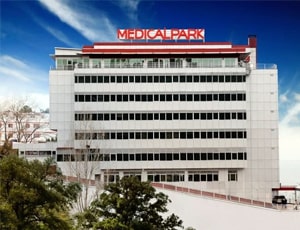
Types of Deep Brain Stimulation in Medical Park Trabzon Star Hospital and its associated cost
| Treatment Option | Approximate Cost Range (USD) | Approximate Cost Range (TRY) |
|---|---|---|
| DBS (Overall) | 20105 - 34000 | 616127 - 998251 |
| Subthalamic Nucleus (STN) | 16689 - 32167 | 501325 - 933866 |
| Globus Pallidus Internus (GPi) | 13262 - 29136 | 409416 - 868789 |
| Ventral Intermediate Nucleus (VIM) | 20499 - 34135 | 598160 - 1038015 |
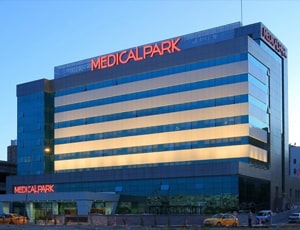
Types of Deep Brain Stimulation in VM Medical Park Ankara and its associated cost
| Treatment Option | Approximate Cost Range (USD) | Approximate Cost Range (TRY) |
|---|---|---|
| DBS (Overall) | 20485 - 33457 | 623568 - 1020890 |
| Subthalamic Nucleus (STN) | 16508 - 31479 | 516168 - 962390 |
| Globus Pallidus Internus (GPi) | 13277 - 29689 | 404509 - 895788 |
| Ventral Intermediate Nucleus (VIM) | 19883 - 33581 | 622351 - 1001698 |
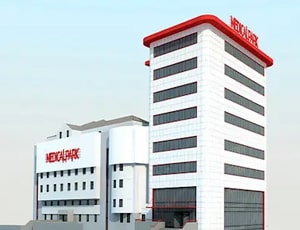
Types of Deep Brain Stimulation in Medical Park Tokat Hospital and its associated cost
| Treatment Option | Approximate Cost Range (USD) | Approximate Cost Range (TRY) |
|---|---|---|
| DBS (Overall) | 20419 - 33501 | 616094 - 1030166 |
| Subthalamic Nucleus (STN) | 16805 - 31457 | 507790 - 931003 |
| Globus Pallidus Internus (GPi) | 13275 - 29871 | 407442 - 873535 |
| Ventral Intermediate Nucleus (VIM) | 20602 - 34476 | 612769 - 1014567 |
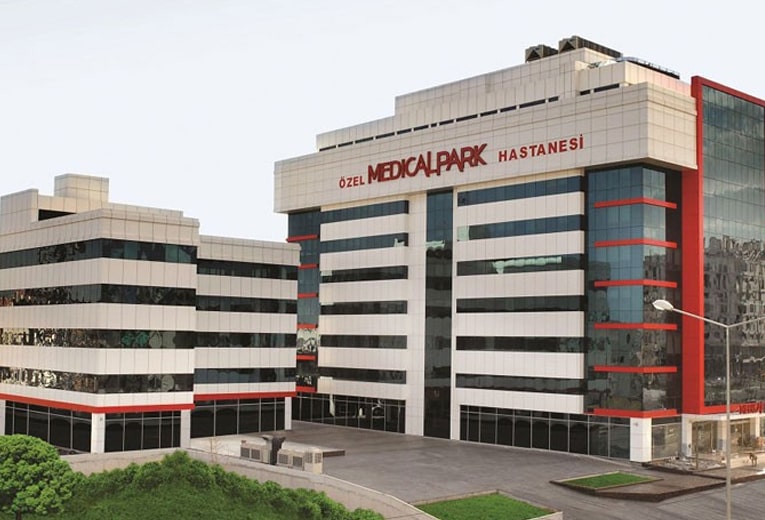
Types of Deep Brain Stimulation in VM Medical Park Samsun Hospital and its associated cost
| Treatment Option | Approximate Cost Range (USD) | Approximate Cost Range (TRY) |
|---|---|---|
| DBS (Overall) | 20348 - 34190 | 596868 - 1010983 |
| Subthalamic Nucleus (STN) | 16951 - 31843 | 515181 - 946950 |
| Globus Pallidus Internus (GPi) | 13395 - 28920 | 414855 - 886363 |
| Ventral Intermediate Nucleus (VIM) | 20566 - 33356 | 618770 - 1036497 |
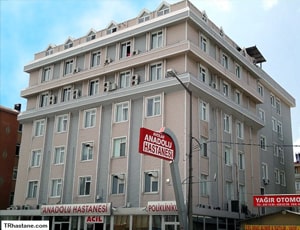
Types of Deep Brain Stimulation in Avcilar Anadolu Hospital and its associated cost
| Treatment Option | Approximate Cost Range (USD) | Approximate Cost Range (TRY) |
|---|---|---|
| DBS (Overall) | 20212 - 33867 | 612635 - 999856 |
| Subthalamic Nucleus (STN) | 17044 - 31468 | 516849 - 967688 |
| Globus Pallidus Internus (GPi) | 13284 - 29768 | 409860 - 863139 |
| Ventral Intermediate Nucleus (VIM) | 20513 - 33768 | 620309 - 1015577 |
Deep brain stimulation (DBS) is a neurosurgical procedure that involves the implantation of electrodes within the specific targeted areas of the brain. It is used to treat a variety of disabling neurological symptoms.
Deep brain stimulation uses a neurostimulator, commonly referred to as a deep brain stimulator, to deliver electrical stimulation to targeted areas in the brain that control movement.
The impulse sent by the deep brain stimulator interferes with and blocks the electrical signals that cause tremors and other Parkinson’s disease symptoms. The targeted areas most often include the thalamus, subthalamic nucleus, and globus pallidus. Deep brain stimulation procedure has a long history of research. It was first introduced in 1987 and The Food and Drug Administration (FDA) approved deep brain stimulation treatment for essential tremor and Parkinson's disease in 1997.
A pacemaker-like device inserted under the skin in the upper chest regulates the amount of stimulation during deep brain stimulation. The electrodes in the brain are connected to this device by a wire that passes beneath the skin.
Deep brain stimulation treatment has proven effective in most cases, but it could potentially result in serious complications and side effects. This is the main reason why deep brain stimulation treatment is used only for patients whose symptoms are not appropriately controlled with medications.
During the deep brain stimulation therapy, the neurosurgeon first uses an MRI or computed tomography CT scan to identify the exact target within the brain where electrical nerve signals generate the symptoms. Some doctors may use microelectrode recording (a small wire that observes the activity of nerve cells in the target area) to more specifically and precisely identify the target in the brain that will be stimulated during the treatment.
After identifying the targets in the brain, there are several ways in which the permanent electrodes are placed into the target areas. The patient is given a local anesthetic before the procedure, and then the neurosurgeon implants the electrode by making small holes in the skull. The implanted electrodes are connected with extensions (a thin insulated wire) connected with the stimulator. These extensions are passed by some incisions under the skin of the head, neck, and shoulder. A deep brain stimulator is a battery-operated medical device similar to a heart pacemaker. It is implanted under the skin near the collarbone or in the chest.
The surgeon schedules a time to program the generator a few weeks following surgery. The generator continuously pulses electricity into the brain once it has been programmed. With the help of a specialized remote control, the Patient may operate the generator and switch it on or off.
Ask your healthcare adviser for the best multiple options and choose the one that meets your expectations
Deep Brain Stimulation cost in Turkey starts from about USD$ 25000. There are many SAS, JCI, TEMOS certified hospitals in Turkey that offer Deep Brain Stimulation.
The cost of Deep Brain Stimulation in Turkey may differ from one medical facility to the other. The cost quoted by some of the best hospitals for Deep Brain Stimulation in Turkey generally covers the pre-surgery investigations of the patient. The Deep Brain Stimulation package in Turkey includes the fees of the surgeon, hospitalization and anesthesia as well. Stay outside the package duration, port-operative complications and diagnosis of a new condition may further increase the Deep Brain Stimulation cost in Turkey.
There are many hospitals across the country that offer Deep Brain Stimulation to international patients. The following are some of the most renowned hospitals for Deep Brain Stimulation in Turkey:
After discharge from the hospital, the patient has to stay for another 21 days in the country for complete recovery. During this time, the patient undergoes medical tests and consultations. this is to ensure that the treatment was successful and the patient us safe to return.
One of the topmost destinations for Deep Brain Stimulation is Turkey. It has a variety of accredited hospital, affordable cost of treatment and some of the best medical fraternity. Some of the other destinations that are popular for Deep Brain Stimulation include the following:
There are certain expenses additional to the Deep Brain Stimulation cost that the patient may have to pay for. These are the charges for daily meals and hotel stay outside the hospital. The extra charges may vary average around USD$ 40.
Deep Brain Stimulation in Turkey is offered in almost all metropolitan cities, including the following:
After the Deep Brain Stimulation takes place, the average duration of stay at the hospital is about 2 days. This time frame is important for the patient to recover properly and feel comfotable after the surgery. With the help of several tests, it is determined that the patient is doing fine after the surgery and is okay to be discharged.
The average rating of hospitals for Deep Brain Stimulation in Turkey is 5.0. This rating is automatically calculated on the basis of several parameters such as the infrastructure of the hospital, quality of services, nursing support and other services.
There are about 39 Deep Brain Stimulation hospitals in Turkey that are best known for their services. These hospitals have proper infrastructure for the treatment of patients who require Deep Brain Stimulation
Deep brain stimulation is a neurosurgical procedure to manage various disorders related to the brain. A lead is inserted at specific areas of the brain and is connected to a neurostimulator with the help of insulated wires. Neurostimulator is placed well below the collarbone and its function is to generate the electrical impulses. These impulses help manage the irregular impulses occurring in the brain as seen in various movement disorders.
Deep brain stimulation is generally recommended for patients suffering from the following disorders:
Parkinson’s disease: It is a progressive neurological disorder in which nerve cell degenerates due to the reduced level of dopamine. Parkinson's disease affects the movement. Although the disease is not cured through deep brain stimulation, it helps in controlling the symptoms such as rigidity, tremor, walking problems.
Dystonia: It is a neurological movement disorder which causes involuntary muscle contraction which leads to uncontrollable, slow or jerky movement of the head, limbs, trunk, or neck.
Other diseases which may be positively affected with DBS are:
Obsessive-compulsive disorder: It is a type of mental illness characterized by fear without any reason.
Major depression: It is a common and serious medical illness in which a person has a loss of interest in various activities and has mood swings.
Within the last decade, Turkey has become one of the fast-growing countries in the field of medical tourism. Turkey has provided deep brain surgery at an affordable price as compared to other western countries. There are following reasons to undergo treatment through deep brain surgery in Turkey:
49 Turkish clinics have been received a quality certificate by the International Joint Commission.
Turkish government attracts a large number of investments in healthcare sectors.
Turkey hospitals provide world-class facilities, with the latest diagnostic procedures, and highly qualified and internationally trained surgeons.
The success rate for deep brain stimulation surgery is very high in Turkey.
Turkey government has provided a unique visa-free policy.
Patients can easily travel to Turkey from Europe and the Middle east.
Deep brain stimulation is done for those people who are suffering from Parkinson's disease and when their symptoms are not controlled by medicines. Other diseases that can be treated with Deep Brain Stimulations are:
Multiple Sclerosis: It is an autoimmune disease, which affects the nervous system including the brain and spinal cord. In this disease, the immune system attacks the myelin sheath ( that covers the nerve fibers) and causes communication problems between the brain and the body parts.
Essential Tremor: It is a neurological disorder that causes an involuntary shaking movement.
Tourette Syndrome: It is a neurological condition that causes repetitive quick movements or unwanted sounds.
The affordable price for deep brain stimulation in Turkey is one of the main factors which attracts a large number of medical tourists every year. Many JCI-Certified Turkey hospitals offer competitive price as compared to other European and western countries like the US, Australia, etc. The average cost of deep brain stimulation is USD 35,000. There are various factors which affect the overall cost of deep brain stimulation in Turkey which include:
Types of hospitals
Hospital location
Experienced surgeons with advanced degree neurological science
The quality or brand of the stimulator is used
Surgeons fee
Pre-surgery testing charges
Used of the latest medical technologies
Medication cost
Physical therapist session
Patients health status
High success rate
Following are some of the types of Deep Brain Stimulation:
Globus Pallidus DBS: Although this technique is not effective in preventing gait and imbalance in Parkinson's disease, it has the potential to manage other symptoms such as involuntary movements. It is less effective than Subthalamic DBS when it comes to alleviating symptoms.
Thalamic DBS: This technique has limited use because of its complications related to speaking and swallowing.
Subthalamic DBS: It is one of the highly recommended DBS because of its efficacy in managing the symptoms and reducing the dose or stopping medications. Pedunculopontine nucleus DBS: It is relatively a new technique with the potential of managing various symptoms of Parkinson’s disease and other neurological disorders.
The top hospitals in Turkey for deep brain stimulation are:
Memorial Sisli Hospital, Istanbul, Turkey
Memorial Atasehir Hospital, Istanbul, Turkey
Hizmet Hospital, Istanbul, Turkey
Memorial Antalya Hospital, Antalya, Turkey
Memorial Bahçelievler Hospital, Istanbul, Turkey
Memorial Dicle Hospital, Diyarbakir, Turkey
Memorial Kayseri Hospital, Kayseri, Turkey
Medipol Mega Hastaneler, Istanbul, Turkey
Liv Hospital, Istanbul, Turkey
Anadolu Medical Center, Kocaeli, Turkey
There are following neuro-surgeons in Turkey for deep brain stimulation:
Dr. Ali Zırh, Medipol Mega Hastaneler, Istanbul, Turkey
Dr. Mustafa Önöz, Memorial Atasehir Hospital, Istanbul, Turkey
Dr. Salim Şentürk, Hizmet Hospital, Istanbul, Turkey
Dr. Prof. Mahmut Akyüz, Memorial Antalya Hospital, Antalya, Turkey
Dr. Kemal Paksoy, Memorial Bahçelievler Hospital, Istanbul, Turkey
Dr. Adil Yilmaz, Memorial Dicle Hospital, Diyarbakir, Turkey
Prof. Ahmet Menkü, Memorial Kayseri Hospital, Kayseri, Turkey
The patient is required to stay in the hospital for at least one day after surgery but in some cases, the surgeon may advise staying for two days. The deep brain stimulation programming takes around 3 to 4 weeks after surgery. There are following recovery process follows after surgery:
Patients should not take shower specifically in the area around the incision.
Use a gentle shampoo and avoid hair conditioner.
Do not apply any ointment to the area of the incision
Do not lift heavy items ( more than 10 pounds)
Patients should wash head by using a damp cloth carefully.
Patients take medication such as antibiotics (prevent from infections) strictly as prescribed by the doctor.
Stitches and staples are removed around 7 to 10 days after surgery
Heavy activities and swimming are avoided for 4 to 6 weeks of surgery.
The neurostimulator has been activated by specialists after a few weeks of surgery which is customized by special remote control.
The specialist gave the advice to turn off the neurostimulator at night and turning on in the morning according to the patient's conditions.